

You've been waiting patiently for the last of these grim post-mortems on the state of E3. Previously I've written about professional E3 attendees' joyful submission to marketing ploys and schedulers and editors leaving their journalists out to dry. But as I hinted at in the last piece, if we really want to get at the problems of E3, we need to think bigger, toward the overarching culture of enthusiast journalism and fanboy consumption mainstream gaming has adopted.
On Empire
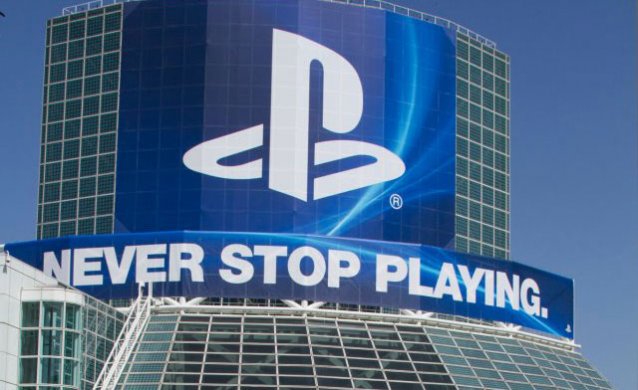
If you've read my 2011 E3 retrospective, much of this will sound familiar to you. What I'm getting at here is not merely a boy culture, or a culture of aggression or misogyny, but a far more sweeping set of affairs which collectively we might call the military-industrial-entertainment complex.
Now, let's be very clear here. If you believe a term like "the military-industrial-entertainment complex" is a concept invented by 9/11 Truthers and other conspiracy theory tinhats, this article is not for you. Stop reading. If, however, you simply don't know what I mean by it, get yourself over to Mckenzie Wark's Gamer Theory.
Pop the cover off your Playstation or your laptop or cellphone. You are looking at stuff that has come from all over the world — brought together by a global logistics. In the guts of your machine you may spot some capacitors made by Kemet, or maybe semiconductors from Intel. These probably contain tantalum, a marvelous conductor of electricity, also very good with heat. They were quite possibly made with coltan (short for columbite-tantalite) dug out of the ground in the Congo, where thereís plenty of coltan, from which tantalum is refined.
[...]
The Congo is arguably the region in which the 'great game' of colonial exploitation has done the most harm and conferred the least benefits. The Congoís first democratic leader, Patrice Lumumba, was ousted in a CIA sponsored coup that brought to power the notorious Mobutu Sese Seku. With the collapse of the Mobutu regime, there was civil war, and little else. One of the things that kept the civil war going was the coltan. Coltan both fueled the war, and accelerated the destruction of wildlife habitats. And so the military entertainment complex, with precious brands to protect, didnít want protest movements sullying their reputations by calling attention to all the gorillas coltan kills, or the guerrillas it feeds. The military entertainment complex would like to believe, and would like you to believe, that gamespace is not a Nietzschian struggle of naked forces, beyond good and evil, but a clean, well lighted, rule-governed game.
The same raw materials which pack your consumer electronics comprise the guts of military hardware, everything from the augmented soldier to autonomous spyplanes. Much is made of the "gamelike" nature of modern war, but the critical takeaway for the moment is that both civilian and military hardware come from the same impoverished, wartorn parts of the world-- from the same mineshafts, often enough. And this fact is completely invisible to the everyday user of these devices.

So when I say that E3 is a "technosexual military fetish orgy," I do refer to its overreliance upon shooters and its warm, eager embrace of actual military sponsors and show presence. But moreover I refer to the very material reality of technofetishism and toxic consumerism that is present at the conference.
The fact that we spend three days each year awash in the lights and noises of an industry that connects itself unabashedly with the exploitation not just of natural habitats and marginalized peoples but also the well-publicized misery and mass suicide threats of laborers in industrialized countries is not something that should be mentioned, as a cough, in a single article two months after the show has ended. It should be shouted from the rooftops of the Los Angeles Convention Center every morning of the show as journalists and industry members line up for entry. It should be part of a contract you must sign before being given your badge:
"I recognize that I am participating in the global exploitation of the world's weakest and least protected and that any fanboy gushing which results from my attendance is done so in complete cognizance of the very material repercussions of my consumerism."
Actually, I think that something like the above should be part of every electronics user agreement and possibly most of the food we eat as well-- but that's not the bone I'm picking today. Most Western world consumers are aware that the food they buy, the clothes they wear, and the consumer electronics they use come from conflict zones or are at least part of a vast system of economic and cultural imperialism. Western consumers --Americans in particular-- are told quite frequently that the privileges they enjoy come at a cost-- what isn't shared in sufficient detail is who, exactly, ends up paying, because it's not someone they're likely to ever meet.
Yet somehow the entire conversation of the real ecological and human cost of hardware manufacturing is a discussion gaming consumers do not feel comfortable having. We talk about rising price tags for software, and about the recession, but of our unsustainable love affair with conflict minerals in the Congo or the inhumane working conditions of assembly workers in China, little is mentioned.
On Entertainment
So why the "entertainment" part of the military-entertainment-industrial complex? Surely the consumer electronics aspect of E3 has something to answer for, but the games themselves? This is where the other part of my "military fetish orgy" invective comes in. Not that it predominates over the industrial aspect, but rather that it helps suppress the critical conversation we should be having about the military's role in facilitating all this wondrous fun. From Wark again:
The military industrial complex developed photography, radar, radio – all the lines of analog telesthesia – as the means of measuring and controlling its forces. [...] The digital emerges as military, but achieves acceptance as entertainment. J. C. Herz: '...most of the technology that's now used in videogames had its origins in military research. When you trace back the patents, itís virtually impossible to find an arcade or console component that evolved in the absence of a Defense Department grant.' The military versions of digital telesthesia make the world over as a military space, but the digital does not yet become a culture other than for a small band of specialists tied to the military industrial complex. The coming together of the digital and the entertainment commodity inscribes the digital not just in space and time, but in cultural perceptions of space and time.
From military research we arrived at the first computers, and from these emerged the first war games, thus creating a continuous narrative of combat and contest that stretches from Space War to Spec Ops: The Line. If the latter recapitulates the war gaming genre in a more critical light, it does so in the same ways that corporate marketing cynically adopts anti-corporate imagery. And for every The Line, there are a dozen Modern Warfares and Homefronts, all gleefully reproducing the tropes of warmongering military-funded Hollywood blockbusters. It's to these we give our accolades, not whatever is the equivalent of a Hurt Locker or an Apocalypse Now. It's to this kind of gory yet clinically disaffected, unrepentent violence that we stage a three-day summer fertility festival each year.
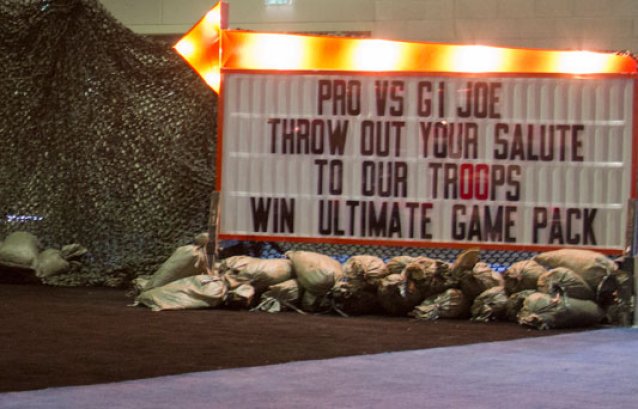
And acts of physical violence, be they the blatantly militaristic type or otherwise, are not where it ends. From Nick Dyer-Witheford and Greig de Peuter's Games of Empire:
The military origins of simulations, the monasticism of hacker culture, the bad-boy arcade ambience, testosterone niche marketing, developers' hiring of experienced (hence male) players, game capitalís risk-averse adherence to proven shooting, sports, fighting and racing formulae—all combined to form a self-replicating culture whose sexual politics were coded into every Game Boy handheld, every Duke Nukem double entendre, and every booth babe at industry conferences, where women appeared only as imperiled princesses and imperiling vixens, a male head-start program, building and consolidating the gender stratification within immaterial labor.
The misogyny conversation is one I am glad to see building momentum. But as Leigh Alexander indicates in that link, we've been criticizing the symptoms, not the disease. The symptoms of misogyny, racism, homophobia, ableism, and so on are all fairly easy to spot-- what is more difficult is addressing their often invisible or obscured root causes, many of which derive from industry hiring practices and the kind of echo chamber feedback loop we produce when the enthusiast press goes to E3 and, rather than criticizes what it finds there, cheers ecstatically for everything.
The problem of a thriving enthusiast press is wrapped up right there in its name: games are an industry that survives on consumer loyalty nearly as much as hard-won cash. And it may be virtually impossible for a journalist or critic to be a journalist or critic without a background as a gamer, and thus to one extent or another a fan or games. But surely that doesn't have to be the final word. No one would suggest a film critic must uncritically support the financing or marketing decisions of major studios; why should game critics be held --on pain of blacklisting-- to such an improbable standard?
"Fan" is not synonymous with "slavish devotee." "Criticism" does not silence the conversation. "Freedom of speech" is not a magical shield intent to protect the user from any and all reproach, and if anyone's going to use it to derail the conversation, let it be the attacked, not veteran journalists rushing in to defend a billion-dollar industry. To quote Mattie Brice:
[...] what is cute about the 'save creativity!' angle is how much people like Colin [Moriarty] are protecting incredibly old, entrenched attitudes. There's a push against how video games deal with sex because it is incredibly UNcreative. Scantily clad women with no other purpose than to be so? What is creative about that? There is nothing creative of our western culture appropriating and exotifying other cultures, weíve been doing that way before free speech was written into law. Or the glorification of a war we had no business initiating as another excuse to shoot brown people? Something tells me thatís not the 'fresh' Colin is looking for. The people that Colin's article represent donít want anything to change, unless you consider figuring out how to get a girl as close to naked as possible without financial retribution creative.
We are perfectly capable as working, thinking adults to express our disapproval, even contempt, for the situation in which we find ourselves, no matter how enthusiastic for our trade or hobby we happen to be. "Enthusiast press" should not be synonymous with "fanboy," and we shouldn't allow ourselves to be treated like fans by exhibitors at a trade conference either.
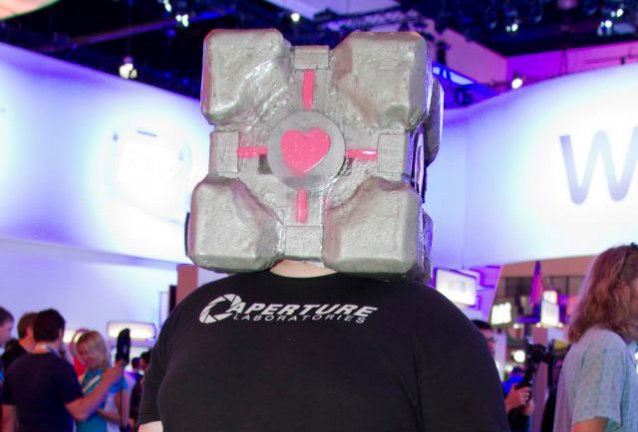
He was actually a very nice guy, but I still have to disapprove.
On Exodus
When I wrote my 2011 E3 retrospective, I included this passage from Games of Empire:
By exodus we mean not an escape on a spaceship to another planet but a social transformation that exits Empire. It suggests a process of overcoming Empire not by seizing power but by subtracting support from its institutions and, at the same time, creating other ones.
Just outside E3's expo halls this year, completely open to the public, lay the Indiecade showcase, a window into what gaming at large could look like: more expressive, less exclusionary, cheaper, and lower-impact for the environment as well (if just by virtue of its smaller development teams and relaxed console focus). On display at the Indiecade showcase this year were games such as Christine Love's Analogue: A Hate Story, an interactive epistolary novel exploring a misogynistic, patriarchal future society, and EIS's Prom Week, an "emergent social interaction game" which omits preconceived notions of sexual normativity.
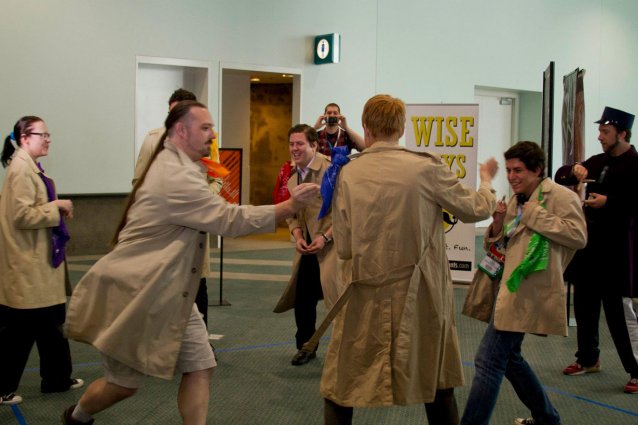
One of Indiecade's showcased "big games" was Pickpocket Junction. Remember when you played games in actual physical spaces?
This is just a tiny sampling of the kind of work Indiecade promotes each year through such showcases and its annual show, held each October just a short freeway drive away from E3's stomping ground. They are not the be-all, end-all of games, but they offer a terribly necessary counterpoint to the raucus din of gunfire and throat stabbings found inside E3's expo hall proper. When I spoke with coordinator Celia Pearce about the Indicade showcase, she told me foot traffic to the booth this year had been staggering, and indeed, it was hard to move around the showcase floor with so many visitors crowding around the games on display (Pearce noted they had more unique titles than most of that year's major publishers). Clearly, there is an interest in games which forge a different path.
The more we support endeavors like Indiecade, and the less attention and unthinking devotion we pay to mainstream development through events like E3, the more we break apart the military-entertainment-industrial complex's stranglehold over gaming. The more we look at booth babes in bounce castles or the military's open and accepted presence at E3 and go "wait, isn't that weird?" instead of taking it as a matter of course that it should and shall always exist, the sooner we can change not just E3 but an entire culture of unchecked consumption and exploitation.
Each of these articles has been written with the awareness that change is often slow and frequently unwelcome by those enjoying the present state of affairs. But the fact that a privileged minority embrace the current situation does not legitimate it and the fact that change can be slow does not mean change is not worthwhile. The fact that the game industry is one of many industries which thrives on exploitation does not mean we should stop playing, or enjoying the things we play; after all, to quote Walter Benjamin: "There is no document of culture which is not at the same time a document of barbarism." What is important is that we remain aware of these problems and actively address them.
Nothing intrinsic to gaming is lost by making it more inclusive or by decoupling it from the apparati of oppression it currently resides within. War and a boy's club mentality might be in gaming's genes, but it doesn't have to stop there. In this respect, E3 is only a small part of the overall situation, but if we can change that, it means we'll have changed much more besides.

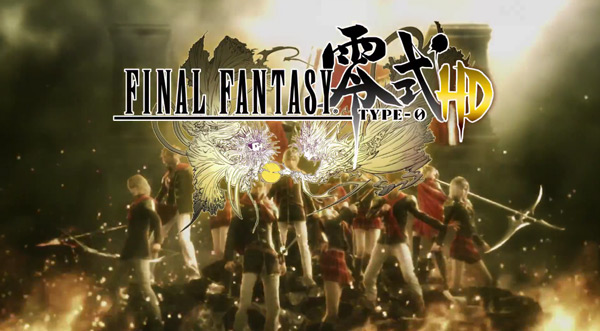


 3 Sites (and One App) to Complete Your Destiny Experience
3 Sites (and One App) to Complete Your Destiny Experience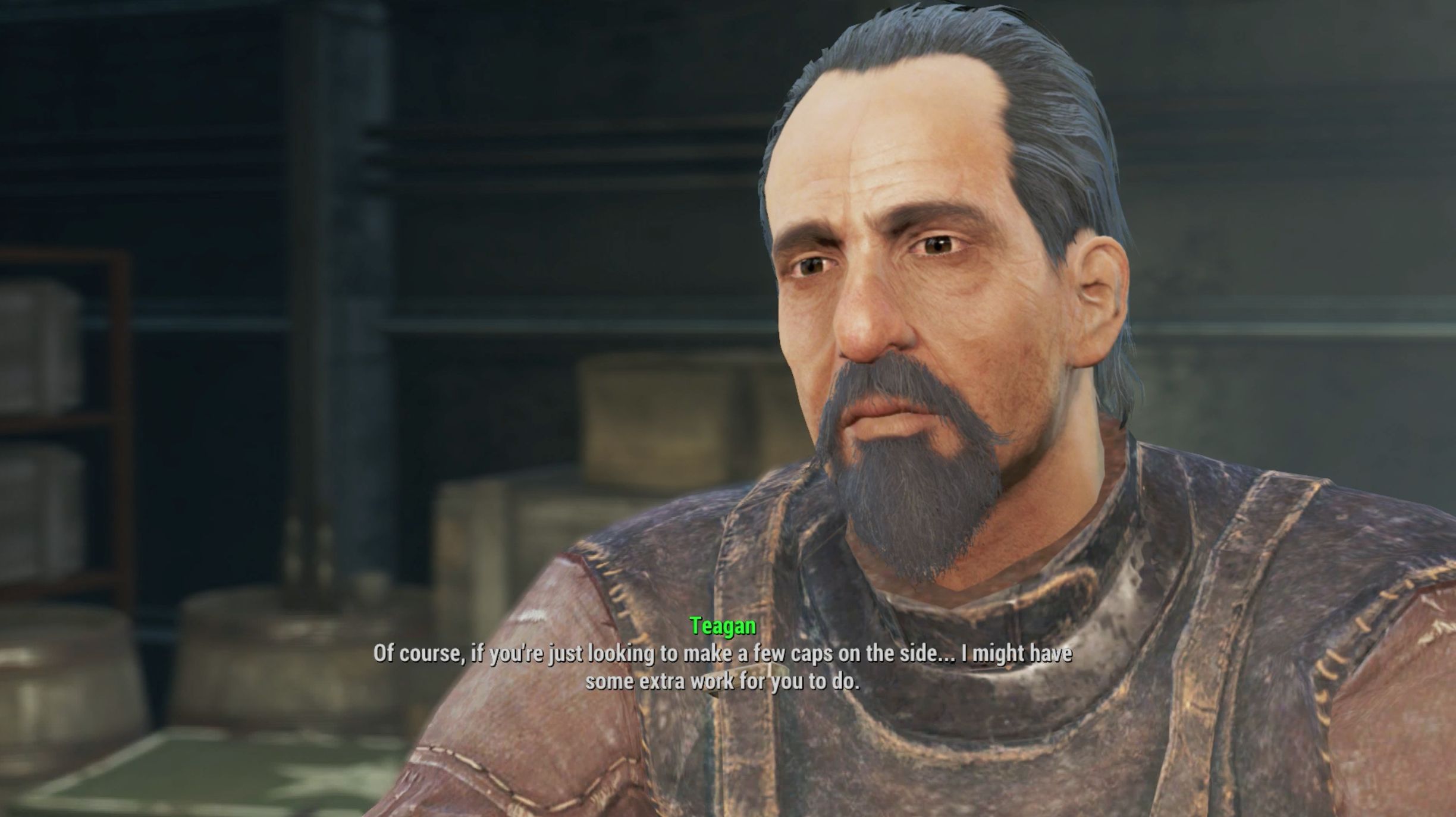 Fallout 4: Tour of Duty walkthrough
Fallout 4: Tour of Duty walkthrough Dark Souls 2 Summoning Rules: Soul Memory Ranges
Dark Souls 2 Summoning Rules: Soul Memory Ranges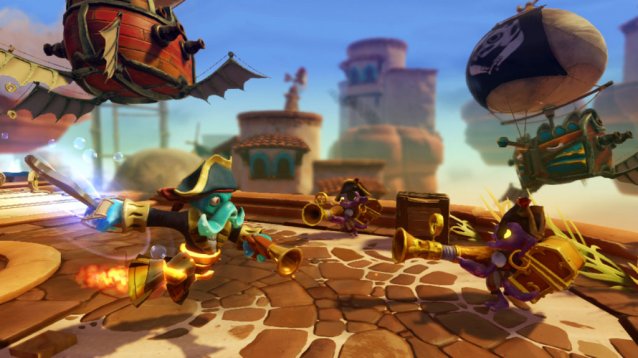 Skylanders Swap Force PlayStation 4 Review
Skylanders Swap Force PlayStation 4 Review Halo 4 Weapons Guide: Human, Covenant & Promethean
Halo 4 Weapons Guide: Human, Covenant & Promethean